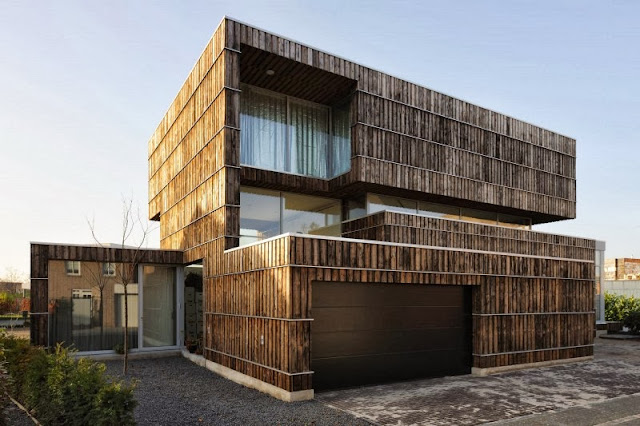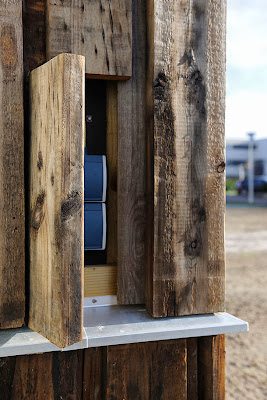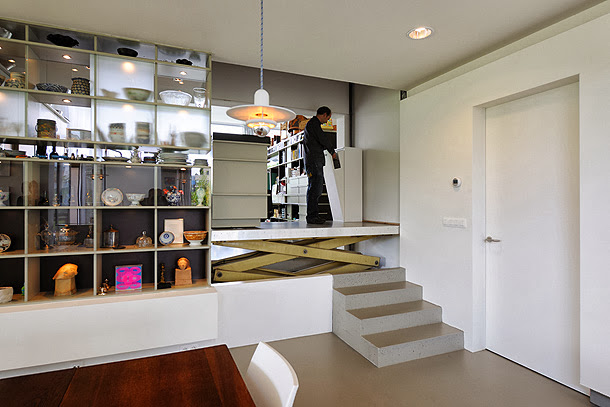Superuse Studios design the atractive contemporary house, its named Villa Welpeloo which a couple has a enxiety for art in Netherlands. This artistic house is composed up of many kind of unused materials. Recycle something not used could bautify this house while reducing the environmental polution.
Villa Welpeloo by Superuse Studios:
“Villa Welpeloo is a residence for a couple with the exquisite wish to store and show a collection of paintings and graphical work of young contemporary artists.2012Architecten aspired to use as much surplus materials as possible. Scouts have (re)searched the possibilities and availability of surplus materials in the vicinity of the site during the design phase. Based on the findings there was a continuous stream of new incentives to develop the design further. The found materials resulted in new shapes and new ways of construction. For the facade the inner parts of a cable reels areused. The load bearing construction is made from steel beams from a paternoster (textile factory machine).InteriorThe basics of the interior are shaped by the exhibition space where paintings can be shown.To make the paintings stand out the colours andmaterials of the interior are on the background.Besides that all the electrical wiring for appliances and lighting has been hidden inside the walls. All built in furniture has a vertical calibration that is used playfully and expressive to place various functions within the furniture. The stair and the furnishings have the same reticent set of colours. On the inside of the furnishings the noteworthy materialization of building signage as drawers and cupboards appears. An elevator for the transport of goods is incorporated in the studio and hidden from sight; it is the building elevator that was used during the construction of the steel frame. The art works are lit by remarkable armatures made from the stretchers of broken umbrella’s. It is designed for this villa by studio En-Fer.MaterialsThe waste materials provided a continuous stream of new incentives to develop and refine the design. New shapes and innovative construction methods were needed to incorporate the found materials.ConstructionThe main structure is made out of steel profiles that previously made up a machine for textile production, an industry once very important in the region. One of these machines gave us enough steel to construct the whole villa.FacadesThe main facades are built with wood normally used for particleboard or for burning. TKF, a factory which produces cables, has large numbers of redundant cable reels, too damaged for further original use. The wooden slats which make up the core of these reels are generally undamaged and of a standard size. These slats, collected from a thousand reels, provided enough material for the facade.”




















0 comments:
Post a Comment